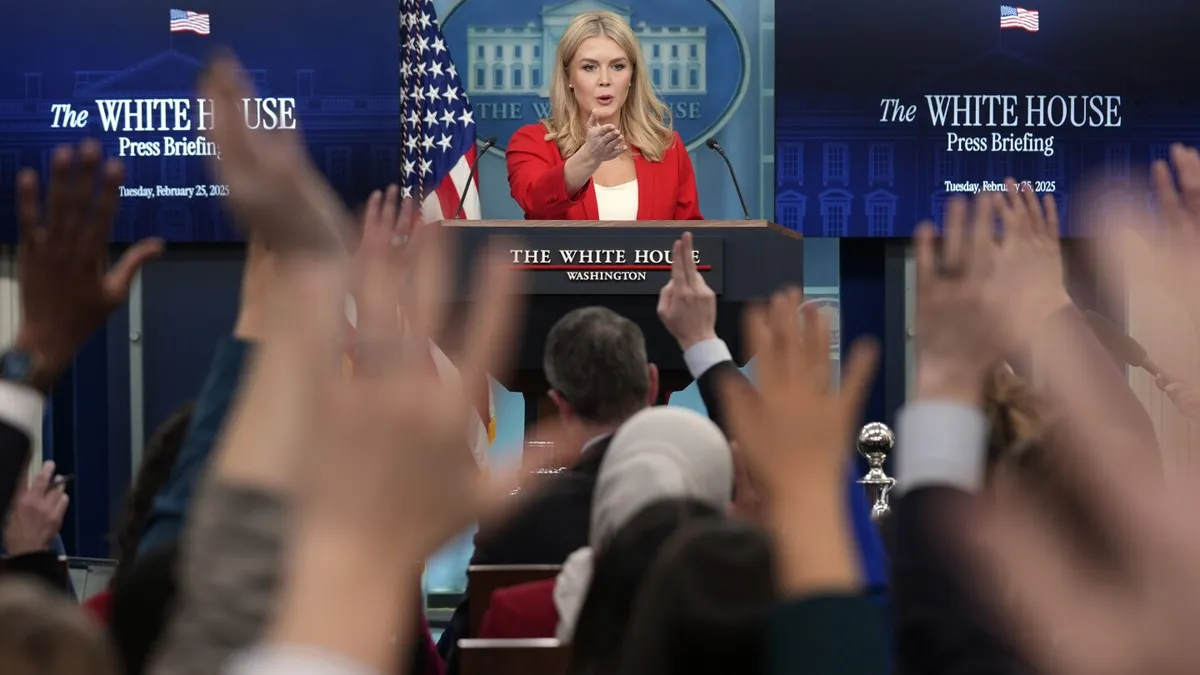
The White House announced on Tuesday a significant shift in how news outlets will cover President Donald Trump. The administration plans to determine which media organizations can regularly access the President, marking a departure from the traditional system where a pool of independently selected news organizations followed the President to hold him accountable on behalf of the American public.
White House Press Secretary Karoline Leavitt explained that the new approach will rotate traditional outlets and incorporate some streaming services. She described the change as a modernization effort aimed at making the press pool more inclusive and restoring "access back to the American people" who elected Trump. However, this move has sparked concerns among media experts about potential First Amendment issues, as it suggests that the President is choosing who covers him.
“The White House press team, in this administration, will determine who gets to enjoy the very privileged and limited access in spaces such as Air Force One and the Oval Office,” Leavitt stated during a daily briefing. She emphasized that a select group of D.C.-based journalists should no longer dominate press access at the White House.
Leavitt mentioned that the White House intends to "double down" on its decision to exclude The Associated Press (AP) from many presidential events. This move breaks from a century-old practice where a pool of journalists from various platforms shared the President’s words and activities. Traditionally, the members of the pool decided who attended events in small spaces like the Oval Office and Air Force One.
“It’s beyond time that the White House press operation reflects the media habits of the American people in 2025, not 1925,” Leavitt declared.
Media experts argue that this change poses a threat to democracy. Jon Marshall, a media history professor at Northwestern University, commented, “It means the President can pick and choose who covers the executive branch, ignoring the fact that it is the American people who through their taxes pay for the running of the White House, the President’s travels, and the press secretary’s salary.”
Eugene Daniels, president of the White House Correspondents’ Association, expressed concern, stating, “This move tears at the independence of a free press in the United States. It suggests the government will choose the journalists who cover the President. In a free country, leaders must not be able to choose their own press corps.”
The Reporters Committee for Freedom of the Press also criticized the move, calling it “a drastic change in how the public obtains information about its government.” Bruce D. Brown, the group’s president, emphasized that “The White House press pool exists to serve the public, not the presidency.”
This announcement follows a federal judge’s decision not to immediately order the White House to restore the AP’s access to presidential events. The AP, citing the First Amendment, has filed a lawsuit against Leavitt and two other White House officials for excluding them due to their refusal to refer to the Gulf of Mexico as the “Gulf of America,” as Trump requested. The AP maintains its style will continue to use “Gulf of Mexico” but will note Trump’s decision.
U.S. District Judge Trevor N. McFadden stated the AP had not demonstrated irreparable harm but urged the Trump administration to reconsider its ban, noting that existing case law is “uniformly unhelpful to the White House.” Another hearing is scheduled for late March to further explore the issue.
Additionally, the AP Stylebook, recognized by international audiences, acknowledged another executive order by Trump to rename Denali back to Mount McKinley, as the mountain is within the U.S. jurisdiction.